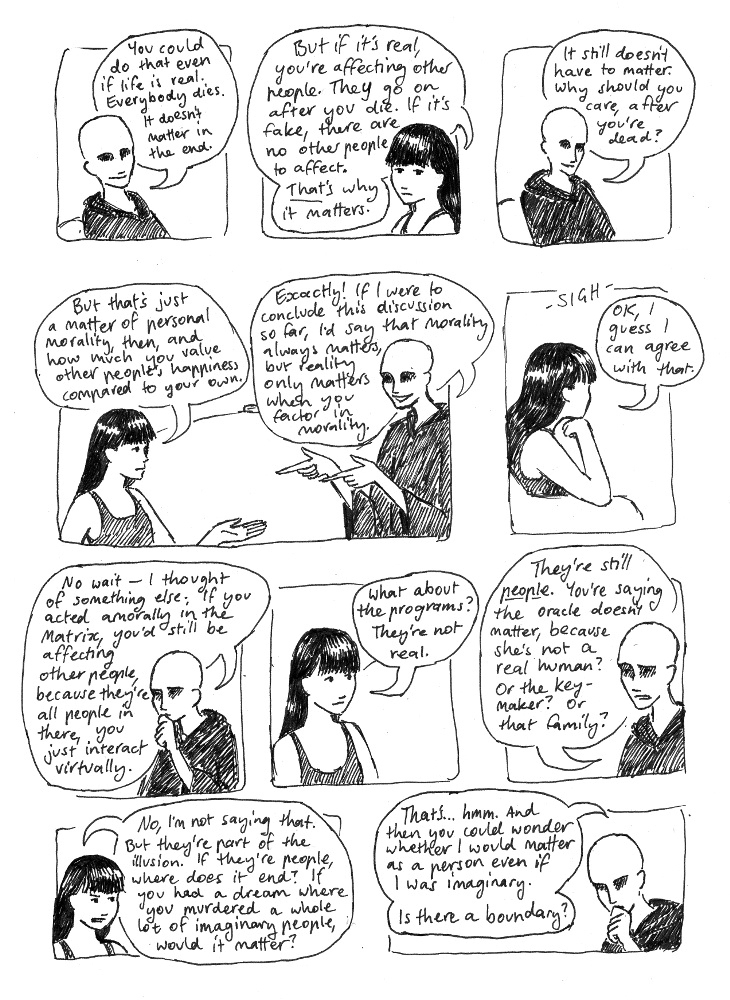Chapter: Chapter 9
↓ Transcript
Dee: You could do that even if life is real. Everybody dies. It doesn't matter in the end.
Emily: But if it's real, you're affecting other people. They go on after you die. If it's fake, there are no other people to affect. That's why it matters.
Dee: It still doesn't have to matter. Why should you care, after you're dead?
Emily: But that's just a matter of personal morality, then, and how much you value other people's happiness compared to your own.
Dee: Exactly! If I were to conclude this discussion so far, I'd say that morality always matters, but reality only matters when you factor in morality.
Emily: SIGH OK, I guess I can agree with that.
Dee: No wait - I thought of something else: If you acted amorally in the Matrix, you'd still be affecting other people, because they're all people in there, you just interact virtually.
Emily: What about the programs? They're not real.
Dee: They're still people. You're saying the oracle doesn't matter, because she's not a real human? Or the key-maker? Or that family?
Emily: No, I'm not saying that. But they're part of the illusion. If they're people, where does it end? If you had a dream where you murdered a whole lot of imaginary people, would it matter?
Dee: That's... hmm. And then you could wonder whether I would matter as a person even if I was imaginary. Is there a boundary?
----
Alt text: (none)
Emily: But if it's real, you're affecting other people. They go on after you die. If it's fake, there are no other people to affect. That's why it matters.
Dee: It still doesn't have to matter. Why should you care, after you're dead?
Emily: But that's just a matter of personal morality, then, and how much you value other people's happiness compared to your own.
Dee: Exactly! If I were to conclude this discussion so far, I'd say that morality always matters, but reality only matters when you factor in morality.
Emily: SIGH OK, I guess I can agree with that.
Dee: No wait - I thought of something else: If you acted amorally in the Matrix, you'd still be affecting other people, because they're all people in there, you just interact virtually.
Emily: What about the programs? They're not real.
Dee: They're still people. You're saying the oracle doesn't matter, because she's not a real human? Or the key-maker? Or that family?
Emily: No, I'm not saying that. But they're part of the illusion. If they're people, where does it end? If you had a dream where you murdered a whole lot of imaginary people, would it matter?
Dee: That's... hmm. And then you could wonder whether I would matter as a person even if I was imaginary. Is there a boundary?
----
Alt text: (none)








